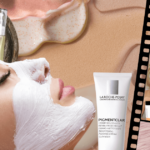Oily Skin: Understanding the Causes and Effective Remedies
Do you often find yourself trying to control excess oil on your skin? Are you constantly dealing with blackheads, breakouts, and clogged pores? If so, you’re not alone. Oily skin is a common problem that affects nearly everyone at some point in their lives.
There are various factors that can influence how shiny your skin gets, leading to clogged pores and breakouts. In most cases, there’s a physiological explanation for why your skin is producing excess oil. Technically, it’s sebum, a waxy substance that’s critical to your overall skin health. Let’s take a deeper dive into this topic and explore the causes of oily skin and effective remedies to deal with it.
Understanding Sebum and Pores
Think of sebum as naturally occurring oil that protects and moisturizes your skin to keep your skin barrier intact. Sebum plays a crucial role in skin immunity, as research has found that it can help fight off harmful microbes. Skin has pores, which are small openings at the base of each hair follicle on your face, to release this built-in moisturizer.
The amount of sebum that your skin naturally produces can dictate your skin type. While there’s an average rate of sebum production, going above or below that can contribute to naturally oily or naturally dry skin. The size of your pores can also be influenced by the amount of sebum your skin produces. If you’re prone to producing lots of oil, your pores might be larger, making them more visible.
The Causes of Oily Skin
There are many factors that can contribute to oily skin. Some of these are within your control, while others are not. Let’s take a closer look at them.
Family History
Oily skin might just run in your family. If one or both of your parents dealt with oiliness, visible pores, and even acne, then you may have inherited it. Unfortunately, this is not something that you can control.
Hormonal Fluctuations
Your hormones play a significant role in the amount of oil your skin produces. Testosterone, in particular, is one of the main drivers of oil production. Its levels fluctuate alongside those of your other hormones like estrogen and progesterone. Hormonal fluctuations especially occur during the teenage years, and during a woman’s monthly menstrual cycle.
Diet
Research has found that the Western diet, which is packed with meat, dairy, and alcohol, is linked to higher sebum production. Simple sugars and milk proteins within these foods can stimulate insulin and a related growth factor, which signals oil glands to create more sebum.
Stress
Stress triggers a cascade throughout the body that eventually reaches your skin. Increased cortisol levels result in increased testosterone levels, which lead to increased sebum production and inflammation.
Environment
Uptick in oil production could be blamed on the weather where spring and summer tend to bring higher levels of sebum on the skin. Long-term exposure to air pollution may lead to more sebum on the skin due to exposure to free radicals.
Effective Remedies to Deal with Oily Skin
While some causes of oily skin are out of your control, there are things you can do to help manage it. Here are some effective remedies.
Proper Skincare Routine
A proper skincare routine can help reduce excess oil and prevent breakouts. Use a gentle cleanser that doesn’t strip your skin of natural oils. A toner can help rebalance the PH level of your skin. Follow up with a lightweight and oil-free moisturizer. Ingredient-specific serums such as salicylic acid, vitamin C, or niacinamide will target problematic skin areas.
Dietary Changes
Reduce the intake of simple sugars and milk proteins. Include more fruits, vegetables, and whole grains in your diet. These contain anti-inflammatory properties can help reduce oil production.
Stress Management
Practice stress-reducing activities such as meditation, yoga, or deep breathing exercises. Doing so can help reduce inflammation and calm the body’s response to stress.
Environmental Factors
Protect your skin by staying out of direct sunlight and pollution. Apply sunscreen that has both chemical and mineral filters. It is also worth investing in an air purifier for your home and car.
In conclusion, having oily skin can be frustrating, but it’s a common problem that many people face. Understanding the causes of oily skin and effective remedies can help manage it better. Proper skincare routine, dietary changes, managing stress, and protecting your skin from environmental factors are key to dealing with oily skin. By taking proactive measures, you can achieve healthy and balanced skin that glows with confidence.











